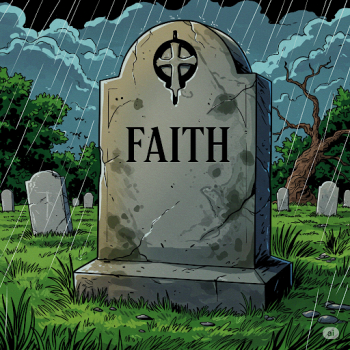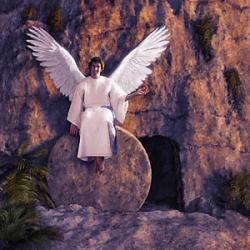On the other hand, it is by no means the only way in which the King Follet Discourse has been read within Mormonism. For example, one can interpret it as saying that God has been eternally god but at some point in the past eternities he became mortal in the way that Christ became mortal and then re-assumed his godship. On this view, God has always been God.
Likewise, one can understand exaltation in terms of becoming an independent God just like the Father. Alternatively, one can understand exaltation as becoming one with the Father as Christ is one with the Father, so that one is a "god" but always and eternally subordinate.
At the end of the day, I don't begrudge the Catholic Church its conclusion. Certainly, their analysis was much more careful than most. (Incidentally, the cardinal with ultimate responsibility for the ruling is now pope.) I just found it interesting that they identified all Mormon intentions with regard to baptism with a single Mormon position, which, while acceptable, is nevertheless toward the edge of the acceptable Mormon interpretation. Given the imprecision with which we generally carry on our theological discussions, in many cases non-Mormons can't be faulted if they have no sense of where the center and where the edges are of Mormon thought.
In this sense, Mormon theology is like the common law. To understand what is or is not the law, one has to read a lot of cases in order to get a sense of where abstract arguments are likely to lose their force, despite their logical validity. One gets a sense of the whole only through immersion in the particulars. This is why a practicing Mormon can tell you that the belief that the garment stops bullets is at the edge of Mormon belief, within the fold but neither universally held nor doctrinally required. A journalist, less familiar with the broad contours of Mormon belief, is unlikely to get the same simple point.
Further reading on doctrine and law by Nathan Oman, available here.
Oman, Nathan. "A Defense of the Authority of Church Doctrine." Dialogue: A Journal of Mormon Thought 40, no. 4 (Winter 2007).
---. "Jurisprudence and the Problem of Church Doctrine." Element: Journal of the Society for Mormon Philosophy and Theology 2, no. 2 (Fall 2006).
---. "‘The Living Oracles': Legal Interpretation and Mormon Thought." Dialogue: A Journal of Mormon Thought 42, no. 2 (2009): 1-19.
Nathan Oman teaches law at William & Mary Law School, and blogs at TimesAndSeasons.org and ConcurringOpinions.com.




